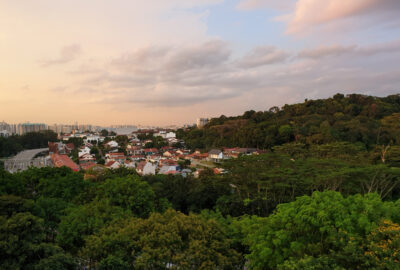Where to live in a future Vietnamese casino resort
The coastal village of Lang Co near Vietnam’s former imperial capital will never be the same in a few years

The fortunes of Lang Co are set to change in the next few years.
The small coastal village in Vietnam’s Hue province is home to Laguna Lang Co, a 280-hectare integrated resort that will, by 2021, host an international-scale casino complex. Vietnamese Prime Minister Nguyen Xuan Phuc consented earlier this year to allowing the casino operations, set to feature some 500 gaming machines and 50 table games.
Investment into the project will reportedly total USD2 billion, the minimum required capital for a casino resort to operate under a three-year trial for gambling by locals.
The initial salvo of residential components in the resort includes the Banyan Tree Residences, launched last week.
The 40 villas, each with its own outdoor infinity pool, are splayed on a jungle-clad mountainside and look out to the resort’s three-kilometre-long private beach.
“These days there are multiple investment opportunities in Vietnam, but not many property owners can say that they have a home that is built on a mountainside overlooking one of the most beautiful bays in the world. Here they can,” said Gavin Herholdt, managing director of Laguna Lang Co.
Occupants can choose from one- to three-bedroom villa layouts spanning from 152 to 260 square metres, respectively. The heights of the villas stand at anywhere between 45 and 85 metres.
Interior elements of the residences pay subtle hoamge to the traditional architecture of nearby Hue, Vietnam’s former imperial capital.
“Our aim with these residences was to showcase the harmony that can be achieved between nature and design,” said Herholdt.
Laguna Lang Co is also home to the Angsana Lang Co resort as well as a championship golf course designed by Nick Faldo.
See images of Banyan Tree Residences:



Recommended
Meet the expert helping overseas investors crack Australia’s property market
Ivan Lam of property advisors Charter Keck Cramer helps clients navigate Australia’s complex real estate dynamics
6 spots to check out in Singapore’s Bukit list neighbourhood
The sought-after Singapore neighbourhood offers lifestyle amenities, green space, and new residential projects
Thailand’s real estate sector watches closely as the Shinawatras return to power
Time will tell if the return to power in Thailand of the Shinawatras will lift the country’s ailing real estate sector
China’s homebuying surge: Can new stimulus measures keep the market rally alive?
Stimulus measures have sparked a surge in homebuying activity around China, but many are sceptical the shift will endure








